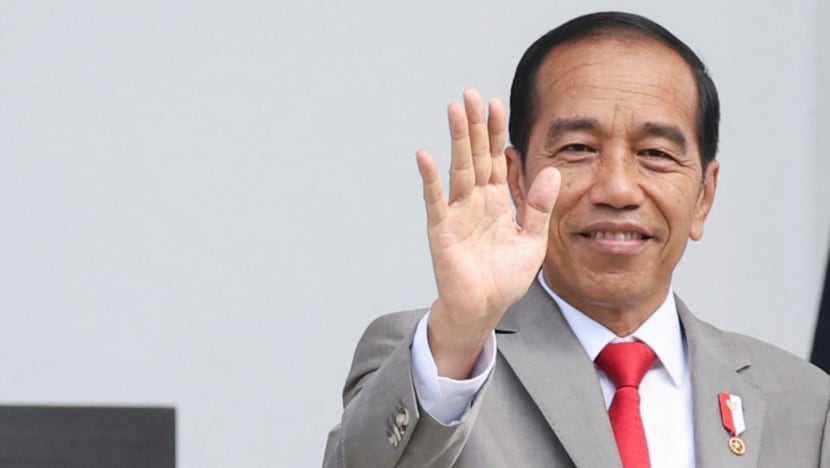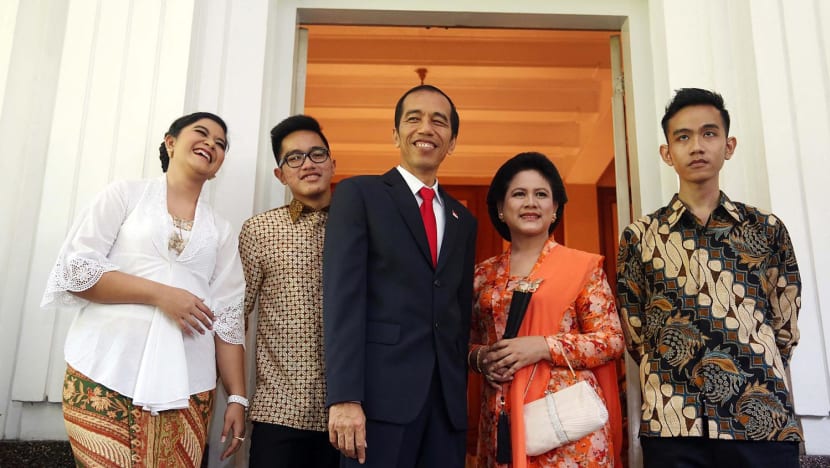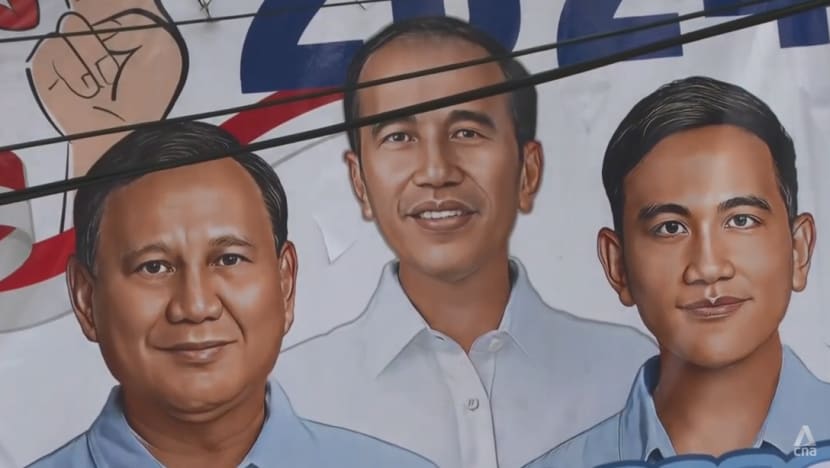Indonesia Elections 2024: How the 'Jokowi effect' has influenced the electoral landscape
Despite not running in the upcoming polls, Indonesian President Jokowi’s face is prominently displayed on election posters across the nation.


This audio is generated by an AI tool.
JAKARTA: Indonesian President Joko Widodo is constitutionally barred from contesting for a third term, but he has emerged as the kingmaker in the presidential polls.
Better known as Jokowi, the 62-year-old is immensely popular and has enjoyed consistently high public ratings.
A late January opinion poll put him at around 80 per cent – an impressive stamp of approval for an outgoing president.
His popularity and loyal following give him the political capital to tip the balance for candidates in the election, observers said.
NEPOTISM CONTROVERSY
Critics have accused Mr Jokowi of building a political dynasty after the constitutional court paved the way for his eldest son Gibran Rakabuming Raka to contest the election.
The court last October ruled that the minimum age of 40 for Indonesia’s presidential and vice-presidential candidates does not apply to elected regional leaders.
This allowed 36-year-old Mr Gibran, who is the mayor of his – and Mr Jokowi’s – home city of Surakarta city, to put his name on the ballot.
The decision drew criticism of nepotism, as the then chief justice was Mr Jokowi’s brother-in-law and Mr Gibran's uncle.
“With this ruling, it will directly give rise to the New Order values that we used to oppose,” said Jakarta State University student Muhamad Kholi, referring to the authoritarian regime of former Indonesian President Suharto.
“This is the beginning of nepotism and we are all against this policy because it stains democracy in Indonesia,” he added.

PERCEIVED BACKING BY JOKOWI
Mr Gibran is contesting the election as the vice-presidential candidate of frontrunner Defence Minister Prabowo Subianto, and Mr Jokowi is believed to be covertly marshalling support to ensure victory.
Since Mr Gibran's addition to his ticket was announced, Mr Prabowo's rating has soared to a double-digit lead over the other two presidential hopefuls Anies Baswedan and Ganjar Pranowo.
While Mr Jokowi has not officially endorsed anyone in the race to succeed him, his son's status as Mr Prabowo's running mate is widely presumed as a presidential seal of approval.
“With Gibran paired as the vice-presidential candidate of Prabowo, this clarifies Jokowi's position,” said Mr Handoko, secretary-general of Projo, a large network of volunteers who helped Mr Jokowi secure his election victories in 2014 and 2019.
With the perceived backing by the incumbent, the network has now thrown its support behind the Prabowo-Gibran camp in a phenomenon some call “the Jokowi effect”.
“It's not Projo nor Gibran that has a big effect (on Prabowo's electability). Jokowi is the big effect. People now do not question what Jokowi's position is anymore. Everything is clear now,” Mr Handoko said.
JOKOWI’S BLUSUKAN VISITS
Election posters across Indonesia are plastered with the faces and caricatures of candidates vying for office ahead of Wednesday’s (Feb 14) polls.
While Mr Jokowi is set to step down in October after serving the maximum two terms, his face is also prominently displayed on campaign posters backing the Prabowo-Gibran ticket.
“The president can campaign, the president can take sides. But, the most important thing is that during campaigning you must not use state facilities,” Mr Jokowi had told reporters during a Defence Ministry event last month.

He has also continued with his trademark impromptu on-the-ground visits, also known as “blusukan”, across Indonesia during the election campaign period.
The president has travelled to Central Java at least three times in the past month to distribute fertiliser, rice and cash assistance, raising questions about his claim of neutrality.
“Blusukan is one of Jokowi’s most effective ways of maintaining his close relationship with the voters. Through blusukan, he can distribute social assistance and so forth,” said Mr Djayadi Hanan, executive director of the Indonesian Survey Institute.
“One of the reasons why the public is so approving of Jokowi’s performance is because the government – through the president – is perceived to be always providing social assistance to the public.”
Mr Jokowi has said he will go back to his hometown of Surakarta, also known as Solo, in Central Java after he steps down and live as an ordinary citizen.
However, observers said Mr Jokowi and his family will continue to wield tremendous influence. They believe Mr Jokowi will continue to play a significant role in shaping politics in Indonesia even after leaving office.

















